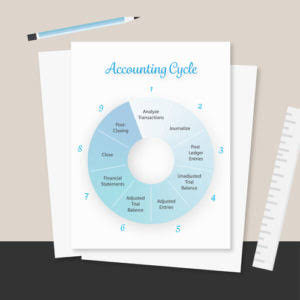
An experienced bookkeeper can offer advice on ways to create effective financial systems so nothing falls through the cracks on a daily basis. Your bookkeeper will maintain your working ledger in a way that is accurate and easy to understand, and can alert you to red flags as they arise. Additionally, since they have a micro view into your books, they should be able to offer ideas on budgeting and spending in the short term. Without bookkeeping, accountants would be unable to successfully provide business owners with the insight they need to make informed financial decisions. In this guide, we’ll explain the functional differences between accounting and bookkeeping, as well as the differences between the roles of bookkeepers and accountants.

Bookkeeping is said to be the basis of accounting, whereas accounting forms a part of the broader scope in finance.
Advantages of an accountant
This can help save money and keep a small business lean, although it requires a major time commitment and meticulous attention to detail from the business owner. While a bookkeeper can help with the precise details of the business, an accountant is better suited to do bigger-picture analysis and strategic planning. Once the bookkeeper posts all transactions, the accountant generates a trial balance that lists all business accounts and balances. Accountants will then use the updated trial balance to produce financial statements.
- The term is most ordinarily used with respect to audits in accounting, and sometimes in project management, legal departments, and financial management also.
- There is a difference between an accountant and a certified public accountant (CPA).
- Our experts suggest the best funds and you can get high returns by investing directly or through SIP.
- Danielle Bauter is a writer for the Accounting division of Fit Small Business.
- Further you can also file TDS returns, generate Form-16, use our Tax Calculator software, claim HRA, check refund status and generate rent receipts for Income Tax Filing.
- AIPB certification requires bookkeepers to have at least two years of full-time work experience and pass a national exam.
Bookkeeping is just one facet of doing business and keeping accurate financial records. With well-managed bookkeeping, your business can closely monitor its financial capabilities and journey toward heightened profits, breakthrough growth, and deserved success. When you think of bookkeeping, you may think it’s all just numbers and spreadsheets. Bookkeeping is the meticulous art of recording all financial transactions a business makes.
Are bookkeepers accountants?
Outsourcing the work to a seasoned bookkeeper can allow you to focus on your business plan and growth. A bookkeeper is skilled at keeping documents and tracks a wide net of financial information. As an accountant, you must pay attention to figures and financial details, but it is more essential to possess sharp logic skills and big-picture problem-solving abilities. While bookkeepers make sure the small pieces fit correctly into place, accountants use those small pieces to draw much more significant and broader conclusions about a company's finances. Therefore, those who do not like math, get confused easily when making simple calculations, or are generally opposed to number crunching should not apply. The complexity of a bookkeeping system often depends on the size of the business and the number of transactions completed daily, weekly, and monthly.

Small steps also give everyone time to familiarize themselves with the new bookkeeping software. The single-entry bookkeeping method is often preferred for sole proprietors, accounting vs bookkeeping small startups, and companies with unfussy or minimal transaction activity. The single-entry system tracks cash sales and expenditures over a period of time.